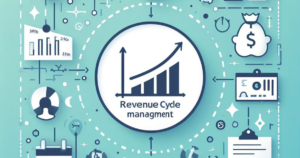Sharing is caring!

A federal statute known as the Health Insurance Portability and Accountability Act (HIPAA) establishes guidelines for safeguarding the confidentiality and security of personal health information. Because it helps preserve patients’ faith and confidence in their Healthcare Providers, HIPAA is essential to the Healthcare sector.
Recent findings show that HIPAA infractions are happening more frequently in Healthcare firms. HIPAA infractions increased by 20% in 2021 compared to the previous year, according to the Department of Health and Human Services (HHS). Numerous variables, like the growing prevalence of digital technologies in Healthcare, the development of cybercrime, and the COVID-19 pandemic, which has put pressure on Healthcare systems, can be linked to this rise.
Causes of HIPAA Violations
There are a number of reasons why HIPAA violations occur and understanding them is crucial for avoiding further security breaches. HIPAA violations can occur for a variety of reasons, some of which are:
- Employee Error: The most common reason for HIPAA violations, employee error can happen when staff members send private information to the wrong recipient or leave private information exposed.
- Inadequate Education and Training: Workers must get instructions on HIPAA rules and recommended procedures for safeguarding patient information. Employees could not know the right processes to follow in the absence of adequate training, which could result in HIPAA violations.
- Inadequate Security Measures: Healthcare institutions must put in place the necessary security measures to safeguard patient data, including firewalls, encryption, and password security. Cybercriminals may find it simpler to access sensitive data if there are inadequate security measures in place.
- A lack of resources and funds: Implementing HIPAA compliance can be expensive, and some Healthcare institutions might not have the funds or resources to do so. HIPAA breaches may result from this resource shortage.
- Insider Threats: Insider threats are people who have access to confidential information and misuse it. The right procedures must be in place for healthcare firms to guard against insider threats and keep track of employee behavior.
Prevention and Solutions
Frequent HIPAA infractions have serious repercussions that may endure for a long time. For instance, Healthcare Institutions may be subject to significant fines, a loss of patients’ credibility and trust, and reputational harm.
To ensure the security and privacy of patient information, and to avoid the issues mentioned before it is essential to prevent HIPAA violations. Here are some solutions and preventative actions to consider:
- Providing HIPAA Compliance Training: This can help staff members comprehend HIPAA rules and the best ways to safeguard patient information.
- Adopting Secure Technology: To safeguard sensitive data, Healthcare Institutions should invest in secure technologies like encryption and firewalls.
- Performing Regular Risk Assessments: Regular risk analyses can assist in pinpointing potential weak points and places where HIPAA compliance can be strengthened.
- Investing in Resources and Budget: Implementing HIPAA compliance can be expensive, but investing in the necessary resources and budget can prevent HIPAA violations and ensure the privacy and security of patient information.
- Employee Screening and Monitoring: Healthcare Organizations must screen employees and monitor their activity to prevent insider threats and maintain HIPAA compliance.
Conclusion
HIPAA violations can have major repercussions, but Healthcare Institutions can maintain patients’ trust and confidence by taking the appropriate precautions to prevent them. Healthcare businesses must take the time to comprehend HIPAA violations’ root causes and put the required preventative measures in place to safeguard patient information. Healthcare institutions can guarantee the confidentiality and security of the sensitive and personal data of their patients in this way.
If you’re a Healthcare Professional or work in the Healthcare Industry, it’s essential that you take the necessary steps to prevent HIPAA violations. By implementing the preventative measures discussed in this article, you can help ensure the privacy and security of patient information and maintain compliance with HIPAA regulations. If you have any questions or need further guidance on HIPAA compliance, please don’t hesitate to reach out to us at Apaana Healthcare.
References:
Department of Health and Human Services. (2021). Summary of the HIPAA Privacy Rule. Retrieved from Summary of the HIPAA Privacy Rule | HHS.gov
Health Insurance Portability and Accountability Act of 1996. (1996). Public Law 104-191. Retrieved from https://www.gpo.gov/fdsys/pkg/PLAW-104publ191/pdf/PLAW-104publ191.pdf
American Health Information Management Association. (2021). . Retrieved from Health Information Held by HIPAA Non-Covered Entities | Advocacy (ahima.org)
National Institute of Standards and Technology. (2021). HIPAA Security Rule. Retrieved from https://csrc.nist.gov/pubs/sp/800/66/r1/final





